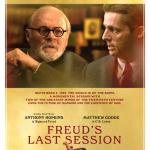
We held our quarterly Interpreter Foundation board meeting today — technically, it’s our annual board meeting (so, among many other things, we voted to continue our officers as they had been constituted) — and our book committee met this afternoon. There are, I’m happy to report, some very good things on the horizon. I’m so grateful for all of those who contribute time and effort to make Interpreter work — notably including the members of our board — and for all of those who have provided the financial support that is indispensable to our efforts.
Last night, in preparation for today’s meeting, I got a first look at the initial rough English version — it is also being produced, simultaneously, in French — of a half-hour segment of our Not by Bread Alone film project. This particular portion of the project relates the story of Elder Willy Binene, who currently serves as a member of the Third Quorum of the Seventy, and of his wife, Sister Lilly Binene, and of the Church in Luputa, in the Democratic Republic of the Congo. They have overcome many almost unimaginable adversities but have remained faithful. It’s an inspiring story.

I’ve been reading Good God: The Theistic Foundations of Morality, by David Baggett and Jerry L. Walls (Oxford and New York: Oxford University Press, 2011). Here’s a very early passage that I marked:
In 1979, . . . Yale law professor Arthur Allen Neff published an essay in the Duke Law Journal that probed the fragile foundations of postmodern morality. He began his essay by identifying “two contradictory impulses” that he thought were present in most people. On the one hand, we want to believe that there is a complete set of transcendent propositions that direct us how to live righteously, propositions that he characterizes as “findable” because they exist objectively and independently of us. On the other hand, we want to believe that there are no such rules, that we are completely free to decide and choose for ourselves what we ought to do and be. “What we want, Heaven help us, is simultaneously to be perfectly ruled and perfectly free, that is, at the same time to discover the right and the good and to create it.” . . .
Leff’s article concludes on a memorable, if somewhat despairing note as he acknowledges the dismal prospects if we ourselves are all we have when it comes to morality. His final lines are as follows:
As things now stand, everything is up for grabs.
Nevertheless:
Napalming babies is bad.
Starving the poor is wicked.
Buying and selling each other is depraved.
Those who stood up to and died resisting Hitler, Stalin, Amin, and Pol Pot – and General Custer too – have earned salvation.
Those who acquiesced deserve to be damned.
There is in the world such a thing as evil.
[All together now:] Sez who?
God help us.
They provide an example:
Consider the analysis of sociobiologist E. O. Wilson, who contends that centuries of debate have left us with just two fundamental options with respect to morality: the “transcendentalist” option and the “empiricist” option. The former holds that moral principles exist outside human minds and are true independently of our experience, while the latter holds that they are the inventions of human minds, and can be explained in terms of biological and cultural evolution. (3)
The always interesting and worthwhile Thomas V. Morris wrote the foreword to the book. Here’s a paragraph from that foreword that (in my judgment) lays the central issue out rather clearly:
To put the question as simply as possible: What would be the objective, ontological nature of a moral principle, or moral standard, in a world where mind, soul, and personhood were completely reducible to materialistic entities — whether finally spelled out in the language of matter or physical energy? It is difficult, if not just impossible, for these critics of theism to come up with an answer that seems any less “strange” than the ultimate components of the philosophical worldview they are urging us so passionately to avoid. But, notoriously, rejecting any objectively metaphysical basis for moral judgments reduces them to some form of “I don’t like it” or “My peer group/cultural context/posse of fellow skeptics doesn’t like it.” And this takes a considerable amount of the sting out of any moral outrage that’s being shown, to put it mildly. (x)

In closing, I leave you with five chilling reports of unashamed and fiendish evil from the Christopher Hitchens Memorial “How Religion Poisons Everything” File™:
“World Food Programme and Church Leaders Meet Liberian Officials to Reduce Food Insecurity”













